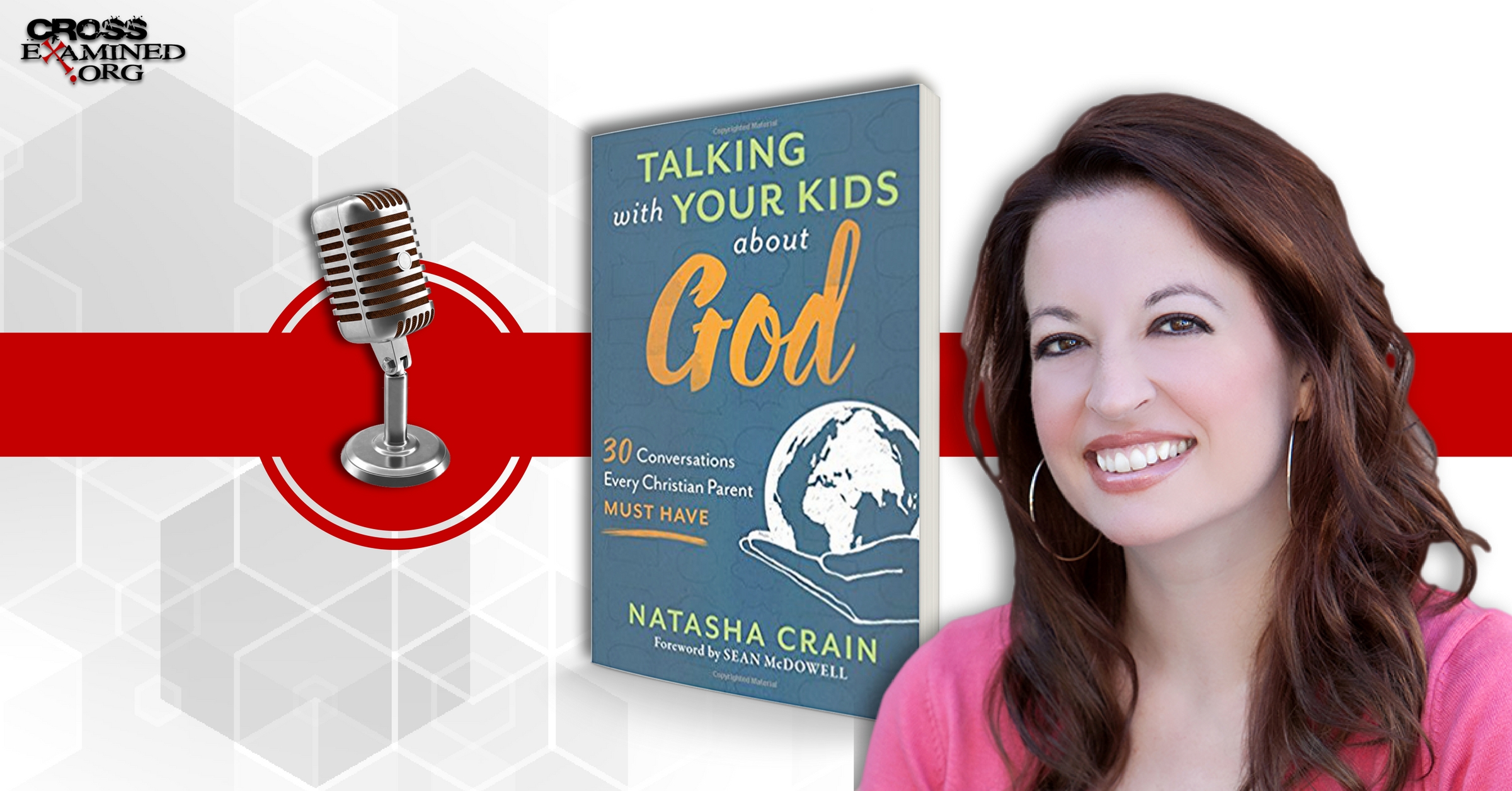Having blogged for over six years now, I’ve received hundreds (and hundreds) of comments and emails from skeptics of Christianity. Once in a while, I receive one from a pleasant non-believer who is truly interested in discussing evidence, asking reasonable questions, and engaging in thoughtful discussion.
But that’s the exception.
Those who contact me typically wield the tool of shaming to make their point—something highly ironic given how much skeptics talk about the importance of evidence.
To be clear, none of the non-believers I personally know would use shaming tactics in person. But when people are behind their screens, it brings down the “barrier” of civility, and faith conversations often look very different. You can see it on social media (even with friends who wouldn’t say such things in person), comments on news articles, blog posts—everywhere.
Kids need to understand these emotion-laden shaming attempts they’ll encounter. Like so much else, this is something parents can and should prepare them for. Here are the five most common skeptics who want to shame your kids for being Christian.
- The Science Thumper
Shame Tactic: Making the child believe they don’t have enough scientific expertise to understand that belief in God is unnecessary and silly.
The Science Thumper applies some notion of science to each and every conversation about Christianity, making it the final word on any given topic, and implying that science and Christianity are at irreconcilable odds.
For example, in response to one of my blog posts about the meaning of life in a theistic worldview, a skeptic commented:
You need to study the mechanisms of replication, mutation, natural selection if you want to understand why life exists and is the way it is. If life and existence are too amazing, astounding and astonishing to exist naturally… then how much more complex is god [sic] for having created it? … Did you invent Superman as a panacea answer for everything you don’t understand?
Questions of faith and science are very important, but framing faith and science as a choice—one option for the unsophisticated and one for those in the know—is a cheap and false dichotomy.
Parent Solution: Thoroughly address faith and science topics so kids understand how shallow and unnuanced the Science Thumper’s claims are. See Talking with Your Kids about God for six chapters outlining the conversations parents need to have.
- The Indoctrination Informer
Shame Tactic: Informing the child that the ONLY reason they believe in Jesus is that they’ve been “indoctrinated” by their parents.
Indoctrination is a word that both Christians and skeptics use wrong. Skeptics often think a kid has been indoctrinated any time they’ve been taught a given religion is true. Christians often think indoctrination means teaching kids Christian doctrine. These misunderstandings lead to conversations that unfortunately sound like this:
Skeptic to Christian parent: “You’re indoctrinating your kids [by raising them in a Christian home]! Let them think for themselves.”
Christian parent to skeptic: “You’re right! I’m teaching my kids Christian doctrine, and I’m proud of it!”
Both skeptics and Christians need to understand that indoctrination means teaching someone to fully accept the ideas, opinions, and beliefs of a particular group and to not consider other ideas, opinions, and beliefs. In other words, indoctrination is a problem with how you teach someone something. It is not inherently related to any particular belief system, though religion is one type of belief system where indoctrination is possible.
Parent Solution: Intentionally introduce your kids to skeptics’ challenges, so they never feel the need to question whether you tried to shelter them from other beliefs. For more on the importance of this, see the post “If Your Kids are Someday Shocked by the Claims of Skeptics, You Didn’t Do Your Job.”
- The Miracle Mocker
Shame Tactic: Making the child feel gullible for believing something that doesn’t happen according to natural laws.
Here’s a recent comment a skeptic left on my blog:
Just because some so-called holy book says something is true doesn’t make it true. Why do you believe outlandish claims about a god [sic] speaking things into existence, or about a man being swallowed by a fish for a few days and surviving, a worldwide flood [and ark] that fit all of the animals in it and eight people, or a story about a virgin getting pregnant? None of that makes sense, you don’t have any proof that it happened, but you still think it’s true. Why do you prefer to believe outlandish claims because they’re religious?
The logic here is what’s “outlandish” (no one believes all miraculous claims simply because they’re religious), but my point is not to critique the details of this particular comment. My point is to show how skeptics present miracles in a way that parades them as “obviously” absurd because (and by definition!), they don’t follow the course of nature.
Parent Solution: Teach kids the basic logic that if God exists, miracles are possible, and if God doesn’t exist, miracles are not possible (for more on this, see chapter 24 in Keeping Your Kids on God’s Side). This brings the question of miracles back to the underlying question of the evidence for God’s existence, so kids understand that the person claiming miracles are silly is simply presupposing God doesn’t exist.
- The Self-Sufficient Scoffer
Shame Tactic: Boasting that the skeptic doesn’t “need” God—and implying that anyone who does has an inferior need for an emotional crutch to get through life.
Oftentimes, when ex-Christians recount their deconversion story, they conclude with a glib comment of how they moved on because they no longer “needed” God. The subtly condescending implication, of course, is that those who believe in God do so because they don’t have the emotional resources to make it through life admitting that we live in a universe of pitiless indifference.
This is a strange conclusion that betrays a lack of deeper insight.
If God exists, we need Him. All things were created through and for Him; He is the Source and Sustainer of everything by definition. Therefore, if God exists, it’s not a choice to need Him… it’s simply a fact that we do.
If God doesn’t exist, we don’t need Him. We cannot need Him. We cannot need something that doesn’t exist.
In other words, saying that you don’t need God anymore is a nonsensical conclusion. Of course, you don’t need God if He doesn’t exist. And if He does exist, you can’t choose to not need Him.
What this kind of statement betrays, therefore, is that the skeptic originally believed in God based on felt needs (desires) rather than on the conviction that He truly exists. When they realized they didn’t need to believe in God to satisfy those felt needs, they simply eliminated Him from the picture and met those needs in other ways.
Parent Solution: Be mindful of helping kids build a faith based on the conviction of God’s existence and the truth of Christianity—not on felt needs for things like being happy, being a good person, or finding meaning in life. In other words, if anyone ever asks your child why they’re a Christian, you should want their response to be, “Because Christianity is true!” For more on escaping the felt need pattern, see the post “Do Your Kids Know Why They Need God?”
- The Tolerance Enforcer
Shame Tactic: Making the child feel like they are unloving and hateful for taking a biblical stance that doesn’t approve of all choices as morally acceptable.
In a spectacular display of irony, the Tolerance Enforcer shames kids into believing that they must be horrible people for disagreeing with non-believers on the morality of various issues. By labeling kids hateful and unloving rather than thoughtfully discussing the evidence for the truth of the underlying worldviews that produce divergent moral conclusions, they rely on purely emotional attacks. Kids without an intellectual foundation for the Christian worldview are left feeling that they must be wrong about the truth of their faith.
Parent Solution: Help kids understand the irony of a person championing tolerance who won’t tolerate Christian beliefs without labeling disagreement hateful. Then demonstrate how Christians and non-Christians will necessarily disagree on moral issues because we have a different source of authority—the Bible. Here’s an example.
In all of these cases, remember that shame, by definition, is “a painful emotion caused by a strong sense of guilt, embarrassment, unworthiness or disgrace.” In other words, the root of shame is feeling inadequate.
In order for our kids to feel (more than) adequate when they encounter shaming attempts, they need to have the deep conviction that what they believe is really true. Only then will they be able to fully see these shame tactics for what they are—shallow and baseless emotional attacks—and be able to say confidently with the apostle Paul, “I am not ashamed of the gospel, because it is the power of God that brings salvation to everyone who believes” (Romans 1:16).
Natasha Crain is a blogger, author, and national speaker who is passionate about equipping Christian parents to raise their kids with an understanding of how to make a case for and defend their faith in an increasingly secular world. She is the author of two apologetics books for parents: Talking with Your Kids about God (2017) and Keeping Your Kids on God’s Side (2016). Natasha has an MBA in marketing and statistics from UCLA and a certificate in Christian apologetics from Biola University. A former marketing executive and adjunct professor, she lives in Southern California with her husband and three children.
Original Blog Source: http://bit.ly/2tHfM82













